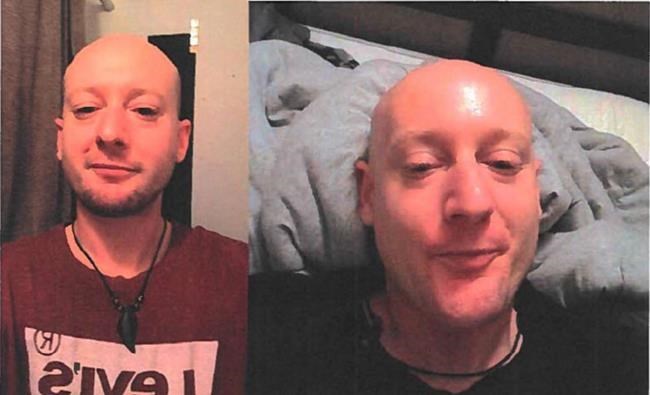
Isaac Brouillard Lessard is shown in Quebec provincial police handout photos. On March 27, 2023, Brouillard Lessard, 35, fatally stabbed Sgt. Maureen Breau and seriously injured another officer before he was shot dead by provincial police in his apartment building in Louiseville, Que., about 100 kilometres northeast of Montreal. THE CANADIAN PRESS/Surete du Quebec **MANDATORY CREDIT**
March 19, 2024 - 3:09 PM
MONTREAL - Risk assessments should be mandatory before Quebec's mental health review board decides whether a patient is released into society, a criminologist told a coroner's inquest on Tuesday.
Josée Rioux told the inquest that a comprehensive risk assessment was not conducted in the case of Isaac Brouillard Lessard, the 35-year-old who stabbed a provincial police sergeant to death on March 27, 2023.
Police had been dispatched to arrest him on charges of uttering threats against his uncle and breaching probation when he killed Sgt. Maureen Breau with a kitchen knife and seriously injured her partner in his apartment building in Louiseville, Que., about 100 kilometres northeast of Montreal.
Rioux, president of the provincial order of criminologists, presented a number of recommendations to the inquest, which is investigating the deaths of Breau and Brouillard Lessard, who was shot dead by police moments after he stabbed the two officers.
The inquiry has heard that Brouillard Lessard had been found not criminally responsible because of mental illness five times for offences in 2014 and 2018. He had also spent a year at a Montreal psychiatric hospital and been followed by the province's mental health review board — the Commission d’examen des troubles mentaux — since 2014.
Brouillard Lessard had been subject to conditions imposed by Quebec court since April 2022, when he was given an absolute discharge and probation after a violent assault on an apartment concierge.
Rioux, who has worked with the provincial parole board, said patients on parole are followed "100 times more" than a person under the authority of the mental health review board.
She recommended that during mental review board hearings, all patients should be systematically evaluated for the danger they pose to others. That evaluation, she said, should be conducted by a professional who can establish guidelines and standards for supervision, surveillance and monitoring when a patient is released into the community.
At the moment, a psychiatrist report is the only mandatory document filed during yearly mental-health reviews, Rioux said. Psychiatrists, even those who are not trained as forensic psychiatrists, conduct their own assessments of their patients, she added.
“To release someone after five verdicts of non-responsibility in matters of violence, it seems absurd to not have a risk evaluation and to assess the needs of this person when released in the community,” Rioux said.
Rioux said the criminologists' order also recommends that patients followed by the mental health review board receive psychosocial monitoring in addition to psychiatric care. Cases, she said, should be managed by interdisciplinary teams that include criminologists and forensic psychiatrists.
She said that in mental-health cases, the various groups involved — including police and doctors — should share information. The inquiry has heard that police have been prevented from receiving information about dangerous patients because of confidentiality rules.
Coroner Géhane Kamel, who is presiding over the inquiry, said hearings will wrap on Thursday.
This report by The Canadian Press was first published March 19, 2024.
News from © The Canadian Press, 2024